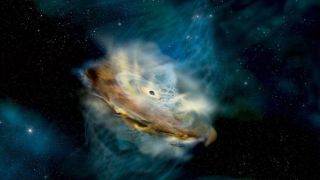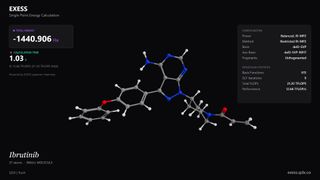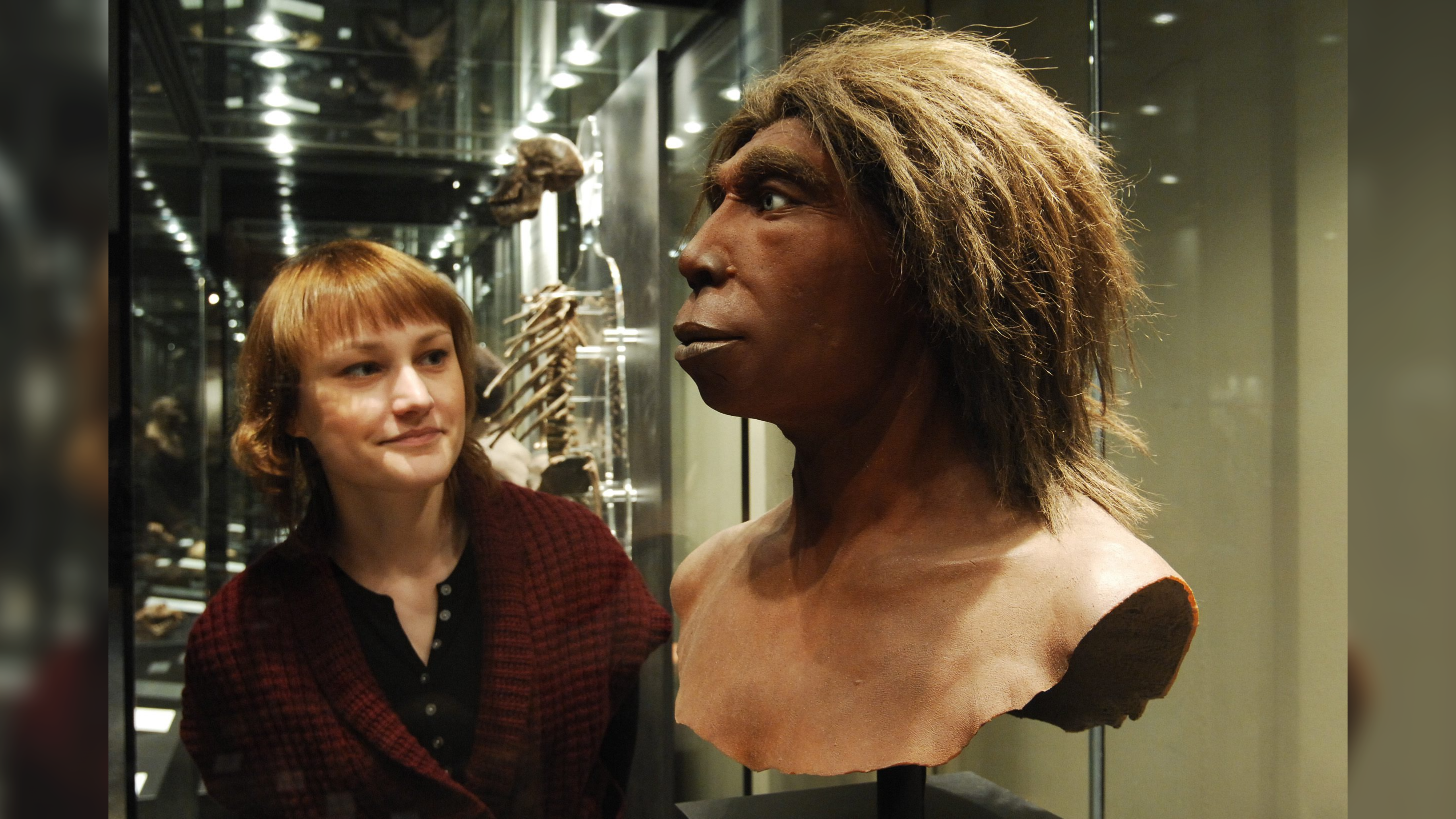Science News: Recent scientific discoveries and expert analysis
Read the latest science news and recent scientific discoveries on Live Science, where we've been reporting on groundbreaking advances for over 20 years. Our expert editors, writers and contributors are ready to guide you through today's most important breakthroughs in science with expert analysis, in-depth explainers and interesting articles, covering everything from space, technology, health, animals, planet Earth, and much more.

Explainers | Everything you need to know about the science news that matters.

Science Spotlight | Shining a light on new science transforming our world.
Latest news
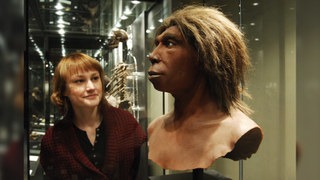
Humans and Neanderthals interbred — but it was mostly male Neanderthals and female humans who coupled up, study finds
By Kristina Killgrove published
A preference for pairings between male Neanderthals and female Homo sapiens may answer the question of why there are "Neanderthal deserts" in human chromosomes.

Rubin Observatory alerts scientists to 800,000 changes in the sky in one night
By Elizabeth Howell published
The Vera C. Rubin Observatory sent scientists nearly 1 million astronomy alerts in one night, showing off changes in the sky. Eventually, the telescope is expected to reach 7 million alerts per night.
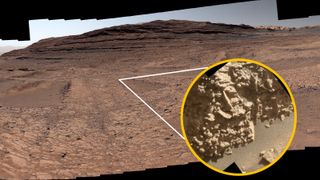
Giant 'spiderwebs' on Mars contain tiny egg-like structures that scientists 'can't quite explain,' NASA rover reveals
By Harry Baker published
New photos captured by NASA's Curiosity rover show that Mars' giant, spiderweb-like "boxwork" features are covered in tiny, never-before-seen nodules that bear a striking resemblance to arachnid eggs. And researchers are struggling to explain them.
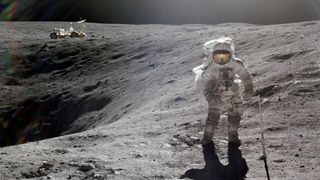
Fresh look at Apollo moon rocks solves decades-old lunar mystery
By Elizabeth Howell published
The lunar rocks collected by Apollo astronauts suggested the moon had a strong magnetic field. A new analysis shows the opposite.
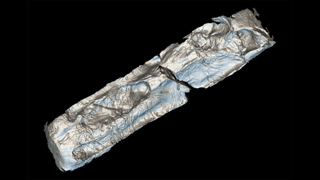
Babies weren't supposed to be mourned in the Roman Empire. These rare liquid-gypsum burials prove otherwise.
By Kristina Killgrove published
Despite historical records saying otherwise, Roman babies were mourned at death, research into unique plaster burials from York reveals.

Chinese astronauts describe moment a crack was discovered on Shenzhou-20 spacecraft
By Patrick Pester published
Taikonauts from the ill-fated Shenzhou-20 mission have described what happened when they discovered cracks on their spacecraft as they prepared to depart China's Tiangong space station last year.
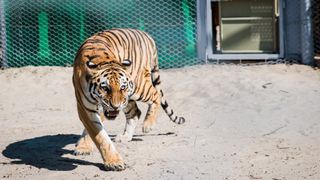
Kazakhstan plants tens of thousands of trees in giant effort to reintroduce tigers
By Patrick Pester published
Kazakhstan planted 37,000 seedlings and cuttings in South Balkhash last year to prepare for the return of its tigers, which disappeared more than 70 years ago.

We now know why shoes squeak, and it involves miniature lightning bolts
By Kenna Hughes-Castleberry published
Harvard engineers think they've found the reason basketball shoes squeak, and it's due to pockets of friction between the rubber and the court.
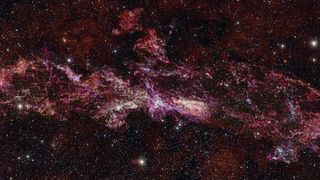
'Rare and enigmatic' structures found at the Milky Way's center in largest-ever map of its kind
By Brandon Specktor last updated
Scientists using the ALMA telescope have created the most-detailed-ever map of the Milky Way's chaotic center. The observations could open a window to the ancient universe as it appeared shortly after the Big Bang.

COVID-19 vaccination during pregnancy may cut risk of preeclampsia
By Gabriela Galvin published
A study of more than 6,500 mothers found that COVID-19 vaccination during pregnancy significantly lowered the risk of preeclampsia, a dangerous blood-pressure disorder.
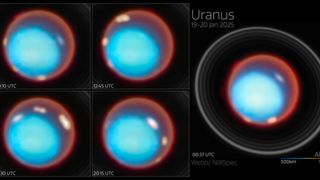
James Webb telescope spots giant auroras rolling through Uranus' atmosphere
By Elizabeth Howell published
JWST observed Uranus for nearly a full rotation, charting the planet's upper atmosphere and magnetic environment for the first time.
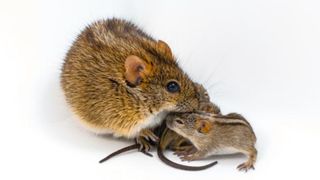
Scientists find genetic 'switch' in mice that turns caring dads into violent brutes
By Kenna Hughes-Castleberry published
A new study suggests that the Agouti gene in the brains of male African striped mice can act as a molecular "switch," making them caring or violent toward their young.
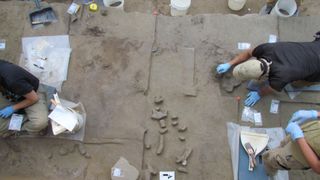
14,000-year-old ivory tools found in Alaska hint at how Clovis ancestors first arrived in the New World
By Charles Q. Choi published
Ancient artifacts unearthed in Alaska revealed migrants from Asia might have come to the Americas via an inland route, and not a coastal path.

Far fewer people are related to Genghis Khan than previously assumed, new genomic study suggests
By Kristina Killgrove published
Some experts have suggested as many as 1 in 200 men in the world are related to Genghis Khan. But a new genomic study reveals the number is significantly lower.

Obesity is linked to 1 in 10 deaths from infection worldwide — and scientists are still learning why
By Stephanie Pappas published
A new study finds that people with obesity are more likely to be hospitalized with or die from severe infections.
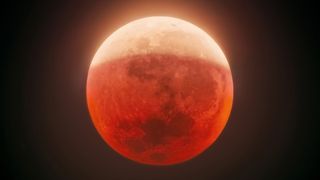
'Blood moon' total lunar eclipse: How to see the March 3 celestial spectacle from anywhere on Earth
By Jamie Carter published
The final "blood moon" total lunar eclipse until 2029 is coming to North America this Tuesday (March 3). Here's how to watch it online.
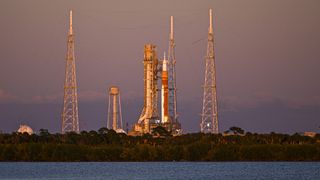
NASA set to roll Artemis rocket back for urgent repairs after yet another delay
By Patrick Pester last updated
NASA is about to roll its Artemis II moon rocket back to the Vehicle Assembly Building to fix a helium flow issue that guarantees astronauts won't fly around the moon in March.
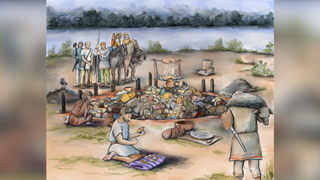
2,800-year-old mass grave of women and children discovered in Serbia reveals 'brutal, deliberate and efficient' violence
By Kristina Killgrove published
An analysis of a mass grave found in northern Serbia is revealing new information about violence in Early Iron Age Europe.
Get the world’s most fascinating discoveries delivered straight to your inbox.
 Live Science Plus
Live Science Plus











